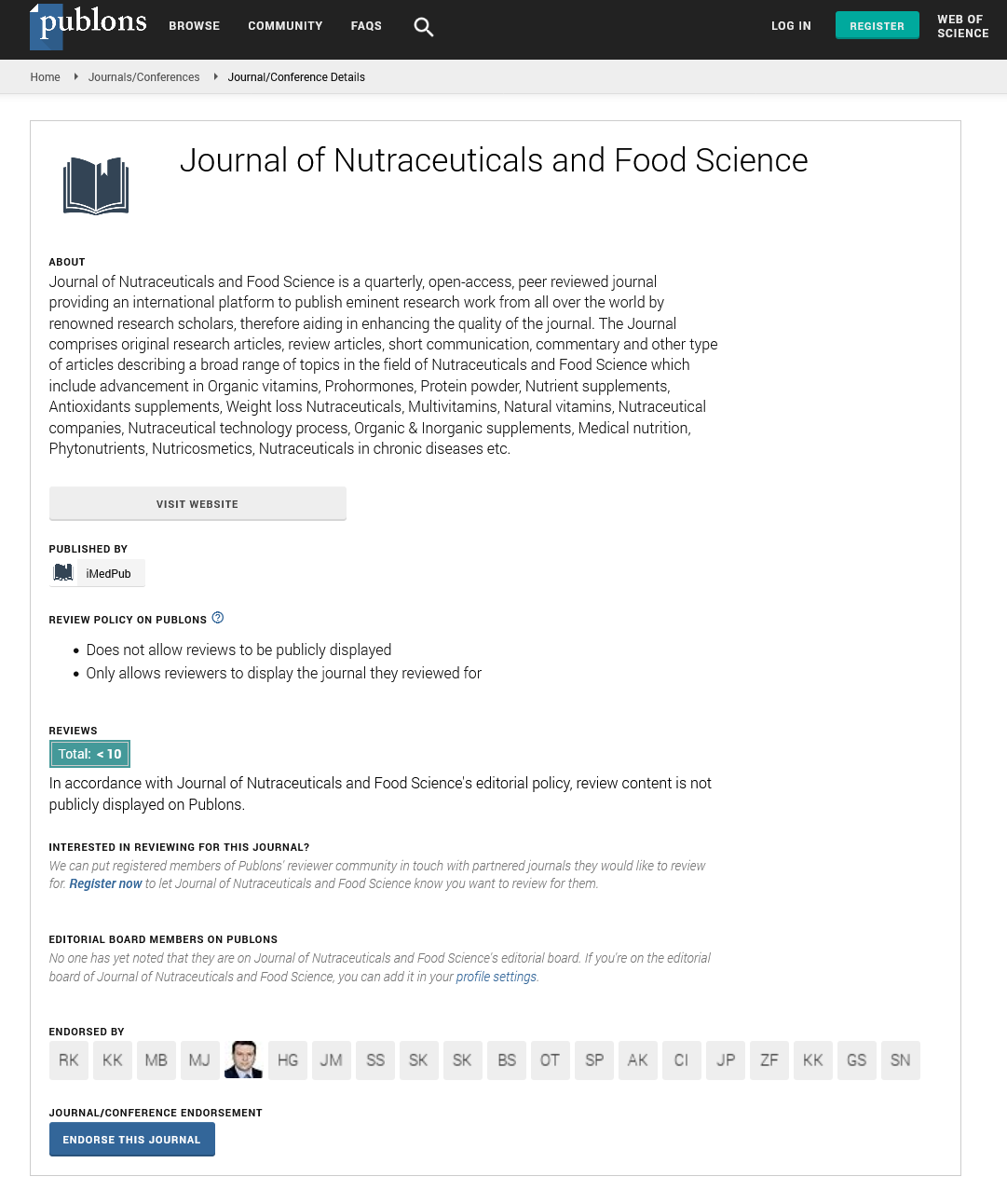Abstract
Effect of Natural Plant Extract (Ginger) to Increase the Shelf Life of Raw Poultry Meat at Refrigeration Temperature
Background: Meat is an integral part of human diet. It is at high risk of bacterial spoilage because of its high perishability which affects the quality attributes of meat and meat products. Lipid oxidation and bacterial contamination are the main factors that decide the food quality and the shelf-life reduction. Therefore the delay of lipid oxidation and the inhibition of bacterial contamination is of great importance for the quality of meat. Antioxidants are those compounds that withstand lipid oxidation. Fruits and vegetables are natural healthy sources of antioxidants.
Methods and Findings: The research work was conducted to investigate the antioxidant and antimicrobial properties of ginger, lipid oxidation and microbial growth in pieces of chicken stored at refrigeration temperature. Different concentrations of ginger (2 %, 3%) are applied to pieces of chicken that not only reduced lipid oxidation but also inhibited microbial activity.
Conclusion: The overall evaluation shows there is a good antioxidant role in ginger. The medicine, which contains both 3% ginger and 2%, has obtained the best results among these. Both showed strong inhibiting properties of the free radicals. It is discovered from the analysis that treatment with 3% ginger produced the best antioxidant and antimicrobial impact. Their presence also affects the color, taste and texture of the chicken bits. As the storage time increased lipid peroxidation and increased microbial charge values, it is evident from the data.
Author(s):
Sana Zulfiqar*, Sabahat Firdous, Muhammad Aqib Sharif, Ahmad Uzair, Maria Zulfiqar
Abstract | PDF
Share this

Google scholar citation report
Citations : 393
Journal of Nutraceuticals and Food Science received 393 citations as per google scholar report
Journal of Nutraceuticals and Food Science peer review process verified at publons
Abstracted/Indexed in
- Google Scholar
- Publons
- Secret Search Engine Labs
Open Access Journals
- Aquaculture & Veterinary Science
- Chemistry & Chemical Sciences
- Clinical Sciences
- Engineering
- General Science
- Genetics & Molecular Biology
- Health Care & Nursing
- Immunology & Microbiology
- Materials Science
- Mathematics & Physics
- Medical Sciences
- Neurology & Psychiatry
- Oncology & Cancer Science
- Pharmaceutical Sciences


